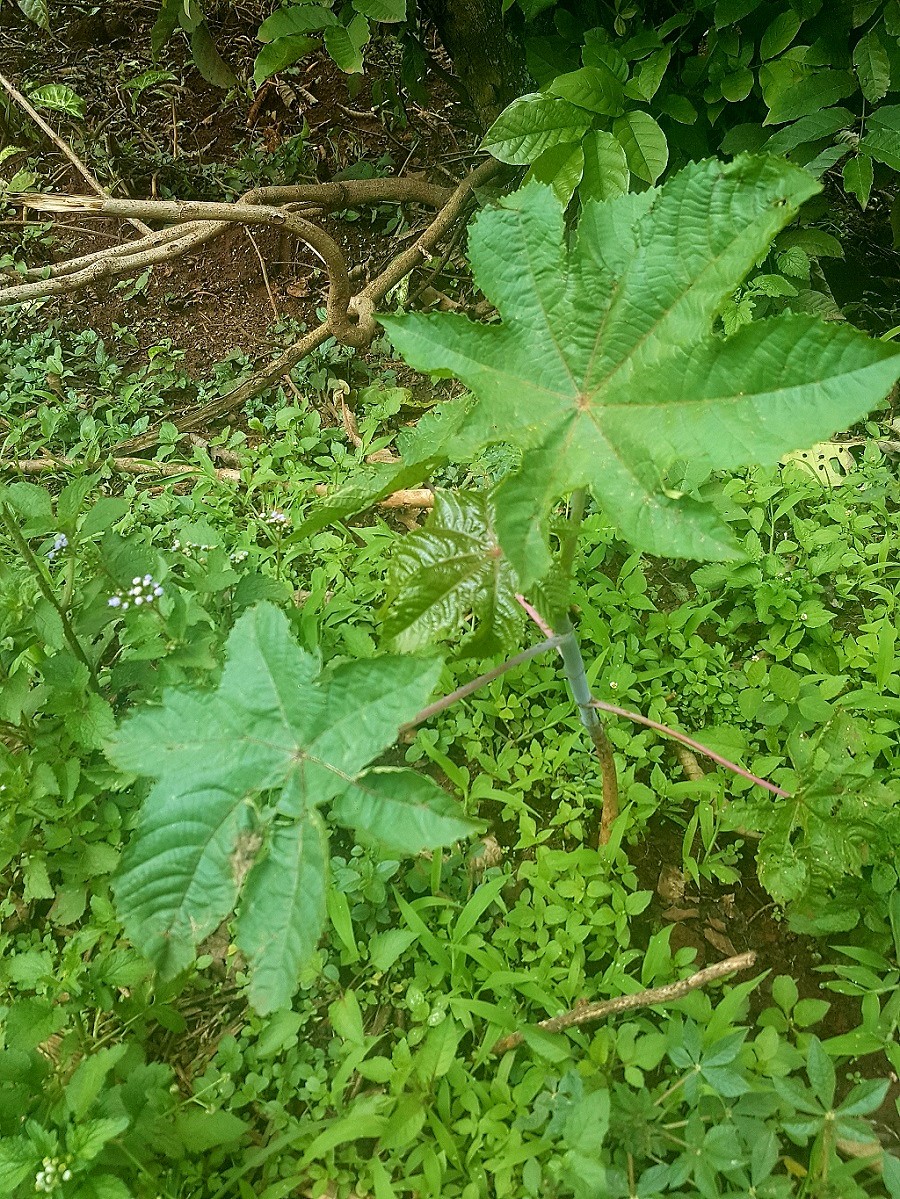Among the Luhya, it mattered how one went to be with the ancestors. Because this had a say on the death and burial rituals that were to be performed in your honor. Unnatural deaths -those by way of accidents, lightening, suicide or murder as we saw in the case of khuuna kumusakhu– were taboo events that had to be avoided at all costs. Enter the livono or libono tree. Another way of Wele’s abundant providence through trees. With this shrub that can grow to the size of a small tree, Wele gifts us a lightening arrester.
Quick Facts About Livono (Libono) Tree
| Scientific Name | Ricinus communis. Common name: castor bean or castor oil tree |
| Local Names | Livono (Maragoli) and Libono (Bukusu). |
| Identifiable features | Star shaped leaves. Purplish discoloration on the bark of its stem. |
In the tropical rain forest lands that Wele gave our ancestors, death of people by lightening was an occurrence not uncommon. It was generally believed sorcerers, might we add only the most powerful, possessed powers to ‘send’ lightening to kill people. Might we add that without doubt, these sorcerers were rank and profile above the shamans, night runners and ‘those with evil eyes’ that were scared off by the Kumwimbwi tree.
One such sorcerer in postcolonial 20th century Bukusu land was the famous Waswa Omululu We’Makotelo. Growing up, Waswa was this dreaded figure rumored to have killed many people by sending lightening to strike them dead. To date, I have never known which village he came from. If he had a family, or how he looked like.
The Cultural Value of Libono (Livono) Tree
Lightening Arrester
Living in such a world where sorcerers could ‘send’ lightning to kill, it is way easy to see the intense desire to protect oneself and family. Especially because death by lightning, was considered unnatural and therefore a taboo.
A death grave enough to warrant special burial rights – and possibly also deny daughters suitable suitors. Moreover, it presented an unfavorable situation for a family to find themselves in. Thus the requirement by our ancestors not to cut down all Libovo (libono) trees in a homestead.
You see, with libono, the temptation to slash and burn is great. This is because the tree is a fast grower. Furthermore, seedlings easily sprout from the seeds dispersed on the ground around the parent tree. In addition, it might interest you to know that the libono tree seeds prolifically, thus completing the triumvirate of an invasive species.
Subscribe to Mulembe Weekly
Get culture, language, stories and discussions in your inbox every Friday 5 PM East Africa Time

